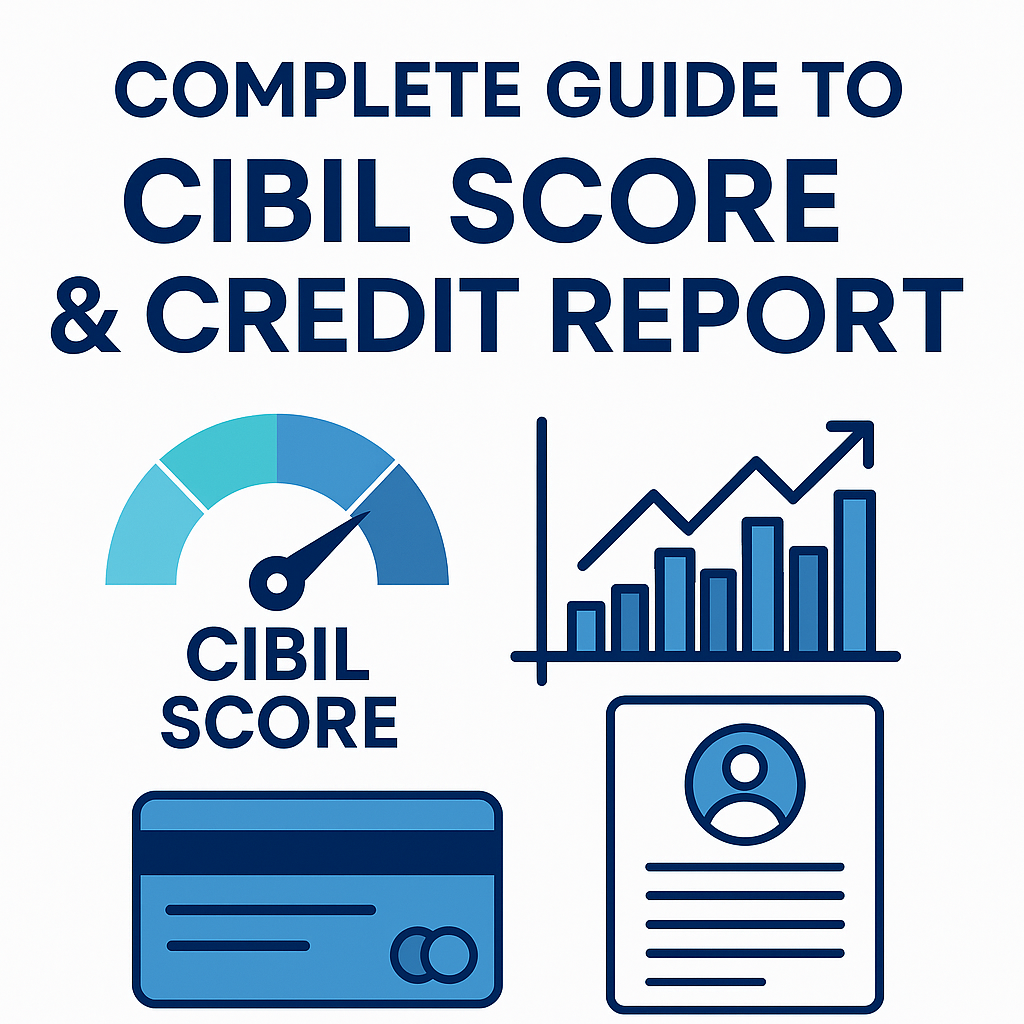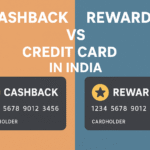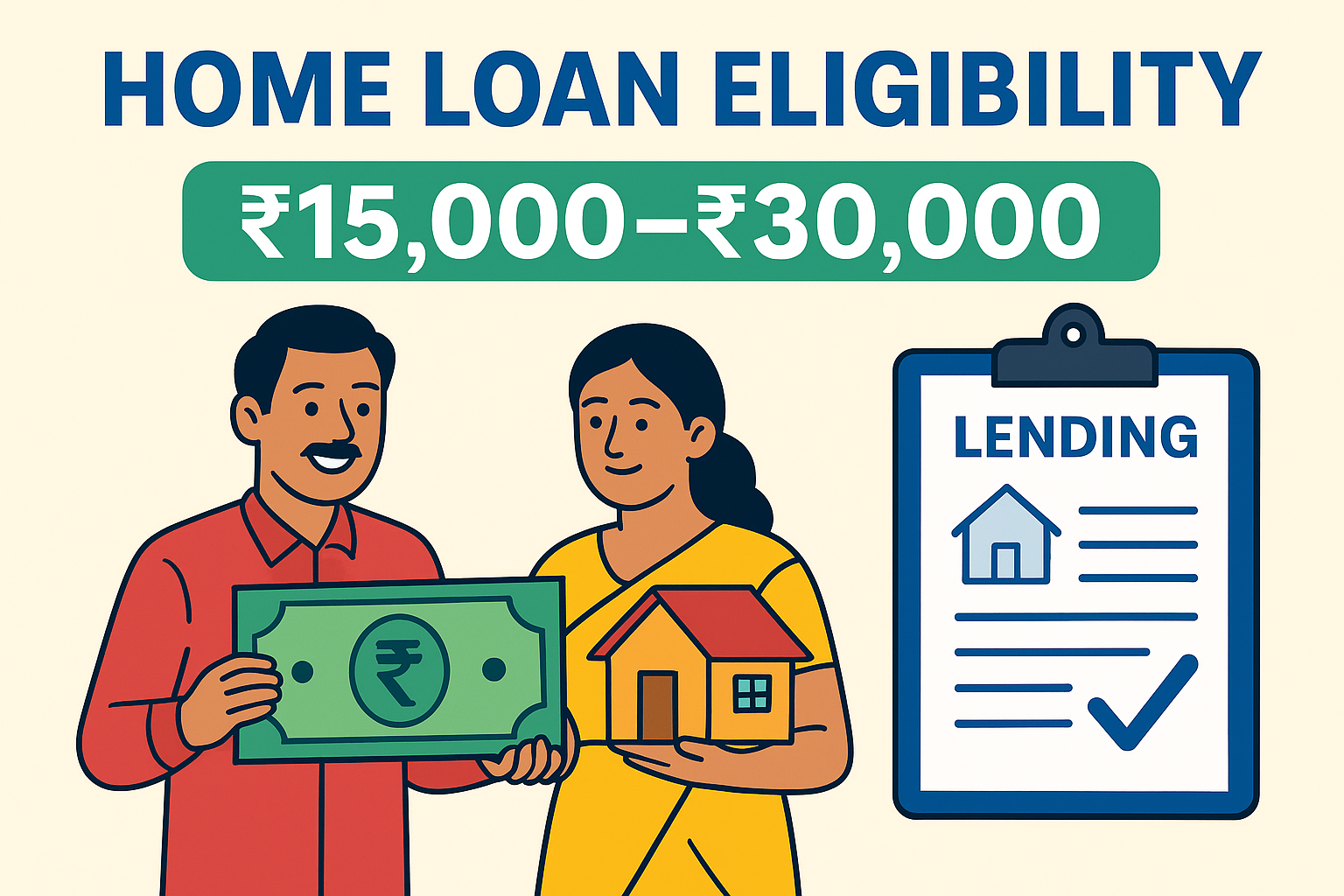Understanding CIBIL Score, CIBIL Track, and How to Improve Them
In today’s financial world, your creditworthiness plays a crucial role in your ability to access loans, credit cards, and other financial products. In India, one of the most recognized indicators of creditworthiness is the CIBIL score, a number generated by the Credit Information Bureau India Limited (CIBIL). Alongside this score, the CIBIL track or credit report reflects your credit history in detail. This article will explain what these terms mean, why they matter, and practical ways to improve your credit profile — including how secured credit products like credit cards against fixed deposits, gold loans, and overdrafts against fixed deposits can help.
What Is a CIBIL Score?
A CIBIL score is a three-digit number ranging between 300 and 900 that indicates how likely you are to repay borrowed money on time. The closer your score is to 900, the better your creditworthiness. Banks and financial institutions rely heavily on this score when deciding whether to approve loans or credit cards and at what interest rate.
A score above 750 is generally considered excellent, giving you an edge when applying for credit. Scores between 650 to 749 are considered good to fair, while anything below 600 indicates a high credit risk and makes loan approvals difficult.
What Is a CIBIL Track?
Your CIBIL track is essentially your credit report. It is a detailed record of all your credit accounts, including loans and credit cards, along with your repayment history over the last 36 months. It includes information such as:
- Personal details like name and PAN.
- Account information including types of credit availed.
- Monthly repayment status.
- Days past due (if any payments were late).
- Enquiries made by lenders when you apply for new credit.
- Your current CIBIL score.
This report helps lenders understand your credit behavior before sanctioning any new credit.
How to Improve Your CIBIL Score and Maintain a Healthy CIBIL Track
Improving your credit score and maintaining a clean credit report takes time and consistent financial discipline. Here are some proven strategies:
- Always Pay Your Bills on Time: Timely payments are the single most important factor in your credit score. Even one late payment can harm your score.
- Keep Credit Utilization Low: Use less than 30% of your available credit limit. For example, if your credit card limit is ₹1,00,000, try to keep your outstanding balance below ₹30,000.
- Avoid Frequent Loan or Credit Applications: Each loan or credit card application results in a “hard inquiry,” which can lower your score temporarily. Apply only when necessary.
- Maintain a Healthy Mix of Credit: A combination of secured loans (like home loans or gold loans) and unsecured credit (credit cards, personal loans) benefits your credit score.
- Review Your Credit Report Regularly: Check for errors or fraudulent activities and dispute inaccuracies immediately with CIBIL.
- Don’t Close Old Credit Accounts Abruptly: Older accounts increase the average credit history length, which positively influences your score.
- Reduce Your Overall Debt: Pay down outstanding balances to improve your debt-to-credit ratio.
- Use Secured Credit Products Wisely:
- Credit Card Against FD: Helps build or rebuild credit history safely.
- Gold Loan: Easy to obtain and helps maintain a good credit record if repaid on time.
- Overdraft Against FD: Offers flexible credit with low risk and supports a strong repayment track.
Conclusion
Your CIBIL score and track are vital components of your financial health. By practicing timely repayments, managing credit usage smartly, and using secured credit products responsibly, you can build and maintain a strong credit profile. This will help you secure loans and credit cards on favorable terms and contribute to your long-term financial stability.
30 Frequently Asked Questions (FAQs) About CIBIL Score and Credit
- What is a CIBIL score?
A three-digit number (300-900) that shows your creditworthiness based on past credit behavior. - What range of CIBIL score is considered good?
A score above 750 is considered good and increases your chances of loan approval. - How often is the CIBIL score updated?
Usually every 30-45 days, based on updates from banks and lenders. - How can I check my CIBIL score for free?
You can check it once a year for free on CIBIL’s official website (www.cibil.com). - What factors affect my CIBIL score?
Payment history, credit utilization, credit mix, credit age, and number of inquiries. - How does late payment affect my credit score?
Late payments lower your score and stay on your report for several years. - Can I improve my CIBIL score quickly?
Gradual improvement is best. Timely payments and reducing debt can show results in 3-6 months. - What is the difference between CIBIL score and CIBIL report?
Score is a number; report is a detailed record of your credit history. - How long does a bad credit record stay on my CIBIL report?
Up to 7 years. - Can I have multiple CIBIL scores?
No, each person has one CIBIL score but may also have scores from other bureaus like Experian. - How do hard inquiries affect my score?
Each hard inquiry can lower your score slightly and stays on the report for 2 years. - What is credit utilization ratio?
The percentage of your total available credit you are currently using. - How does a secured loan affect my credit score?
Helps build your credit profile if paid on time. - What is a credit card against fixed deposit?
A secured credit card backed by an FD, useful for building credit. - How does a gold loan impact my credit report?
Positively if repaid on time; negatively if defaulted. - Can closing a credit card hurt my score?
Yes, it can reduce credit history and available limit, impacting your score. - How often should I check my credit report?
At least once every 6 months. - What should I do if I find an error on my credit report?
Raise a dispute with CIBIL to get it corrected. - Can a low income affect my CIBIL score?
No, income is not considered in credit score calculation. - Does paying off all my loans remove negative credit history?
It stops further damage but past negatives will remain for some time. - Can I improve my credit score without taking loans?
Yes, using secured credit cards and paying bills on time helps. - How does an overdraft against FD work?
Allows borrowing against FD with low interest; helps in emergencies and supports credit growth. - Is it better to have many credit cards or fewer?
Fewer well-managed cards are better than many unused or overdue ones. - What is the ideal credit utilization percentage?
Below 30%. - Does applying for a new loan always reduce my score?
Temporarily, due to hard inquiry. - How does bankruptcy affect my CIBIL score?
It can severely damage your score and remain on your report for years. - What role does credit mix play in credit scoring?
A mix of secured and unsecured credit improves your score. - How long does it take to rebuild credit after default?
Usually 12-24 months of disciplined repayment. - Can co-applying on loans improve credit scores?
Only if repayments are made on time by both parties. - Are credit scores same across all credit bureaus?
No, each bureau may have a slightly different score based on their algorithm.









